This article was co-authored by wikiHow staff writer, Ali Garbacz. Our trained team of editors and researchers validate articles for accuracy and comprehensiveness.
wikiHow’s Content Management Team carefully monitors the work from our editorial staff to ensure that each article meets our high quality standards.
There are 9 references cited in this article, which can be found at the bottom of the page.
Learn more...
Somewhere in between the realms of “friendship” and “romance” is the term “queerplatonic.” While the definition of a “queerplatonic relationship (QPR)” varies by person, it’s often described as a relationship between people who may not be romantically attracted to one another, but goes beyond what others might consider to be a “normal” friendship. But what does that mean? And what does a queerplatonic relationship actually look like? Worry not, because we’re here to answer any questions you may have about QPRs and also walk you through some examples of what a QPR can look like.
Things You Should Know
- A queerplatonic relationship (QPR) is a close relationship that’s not romantic, yet often goes beyond what a culture considers to be a “normal” friendship.
- People in a QPR may not feel romantically attracted to one another, but may still enjoy things like exclusivity and physical intimacy.
- Each QPR is unique, and the people involved in the relationship are the ones who define how it differs from other romantic or platonic relationships.
Steps
What is a queerplatonic relationship?
-
A queerplatonic relationship (QPR) is a close relationship that’s not strictly romantic or platonic. It’s often defined as a non-romantic relationship that goes beyond what a culture subjectively defines as a friendship. The people in a QPR may behave more intimately than what’s considered “normal” between friends, but they may not feel any romantic attraction for one another. However, every QPR is different depending on what each person is looking to get out of the relationship.[1] X Research source
- QPRs are closely tied to the asexual and aromantic communities. People who identify as asexual (ace) or aromantic (aro) often don’t feel sexual or romantic attraction for others, respectively, and so may feel more comfortable in a QPR.
- However, QPRs aren’t exclusive to the ace/aro community, and anyone can participate in a QPR.[2] X Research source
QPR vs. Romantic & Platonic Relationships
-
1There’s often little to no romantic attraction in a QPR. This isn’t a strict rule, and there are certainly instances where one or more people in a QPR have felt romantic attraction for the other. However, it’s also equally as common for there to be no romantic attraction whatsoever between the people in a QPR.[3] X Research source
- An “alloromantic” is a person who feels romantic attraction[4] X Research source , while someone who’s “aromantic” usually feels no romantic attraction towards others. It’s definitely possible for an alloromantic and an aromantic to be in a QPR together.
-
2A QPR may be exclusive like a romantic relationship. Partners in a QPR may decide that they want to be exclusively committed to one another. This might mean that they don’t pursue romantic relationships or other QPRs with other people. A QPR can also involve multiple individuals instead of just a single couple.[5] X Research source
- More commitment and exclusivity don’t necessarily make a QPR the same as a romantic relationship.
- QPR partners can prioritize their relationship while still not feeling any romantic attraction or centering their relationship around romance.
-
3People in a QPR may be more intimate compared to a regular friendship. This can include acts of physical intimacy, like cuddling, hand-holding, and kissing. It can also refer to a deeper sense of emotional intimacy. Those in a QPR might feel like they can be more open and vulnerable with their partner(s) compared to their other friends or family.[6] X Research source
- Sexual intimacy can also be a part of a QPR. This is probably one of the biggest things that often sets a QPR apart from a standard friendship.
-
4A QPR can be just as long-lasting as a romantic relationship. Things like living together, getting married, and having kids can all be parts of a QPR. Of course, communication is key when making these decisions, and it’s important that the people involved are on the same page before taking these steps.[7] X Research source
Signs You May Want a QPR
-
1You’re okay with not being romantically and/or sexually intimate. This isn’t a dealbreaker, but many people in QPRs often don’t feel romantically and/or sexually attracted to their partner. Instead, you might just like the other person’s company, and you think your relationship would be just fine without any romantic or sexual aspects. You may also be attracted to them in a way that’s different from sexual and romantic attraction. These other types of attraction include:[8] X Research source
- Aesthetic attraction: appreciating the appearance or beauty of a person, but not in a sexual or romantic way.
- Sensual attraction: wanting physical contact with another person but not in a sexual way, such as hugging or cuddling.
- Emotional attraction: desiring to get to know someone because of their personality rather than their physical appearance.
- Intellectual attraction: wanting to engage with someone in more of an intellectual manner, such as through conversation or debate.
-
2You feel a bit jealous when the other person mentions other friends. This might mean that you want your relationship with them to be more exclusive, but not necessarily romantic. You’re not possessive per se, but you might like the idea of them prioritizing your relationship above others.[9] X Research source
-
3You’re comfortable with being physically intimate. Cuddling, hand-holding, kissing, and even sex are all things you might be comfortable doing with this other person. You also might feel like these aren’t things you could do with your other friends.[10] X Research source
-
4You want this other person to stay in your life for a long time. You might think of them as your “live-in friend for life” and can see your relationship continuing further into the future. You might even like the idea of moving in together and living together for the foreseeable future.[11] X Research source
- You’ve also probably gotten a few comments from friends, family, or even complete strangers telling you that you and this other person make a cute couple, even though you’re not.[12] X Research source
How to Be in a QPR
-
1Find your QPR partner (or partners). Your partner (or “zucchini” as it’s been so affectionately dubbed) can be someone who’s also looking specifically for a QPR, or someone who’s willing to learn more about QPRs through experience. Talk to people you trust and feel comfortable with about QPRs and ask for their thoughts on the matter. Think about your own personal definition of a QPR and share this with them as you discuss the possibility.
-
2Discuss what you want from this kind of relationship. Are you looking for exclusivity? Physical intimacy? Long-term commitment? All of these are points to cover as you set the groundwork for your relationship. Along with that, also set boundaries in terms of what you don’t want in your relationship. The great thing about QPRs is that each one is different, and you and your partner(s) are the ones making the rules as you go. Some things to talk about include:[13] X Research source
- How does each person feel about romance and romantic elements in the relationship?
- What levels of physical intimacy (if any) is each person comfortable with?
- Does this relationship have a specific time frame and/or end date?
- Is there a certain label you want to use for your relationship?
-
3Make changes as your relationship progresses. The rules you set at the beginning of your relationship aren’t permanent, and you’re free to modify them as you and your partner learn about each other. Maybe you don’t actually want to be that physically intimate after giving it a few tries. Or maybe you want to refer to your partner by a different label. Whatever it may be, don’t be afraid to sit down with your partner and discuss these changes you want.
- Like any friendship or romantic relationship, communication is key to maintaining a healthy QPR.
You Might Also Like
 Trying to Figure Out if Your Date Is Trans? Here’s What You Should Consider
Trying to Figure Out if Your Date Is Trans? Here’s What You Should Consider
-Step-15-Version-3.webp)
-Step-8.webp)

-Step-20.webp)



-Step-6-Version-2.webp)

 Step-by-Step Instructions for Shooting Your Shot with Gay Guys
Step-by-Step Instructions for Shooting Your Shot with Gay Guys



References
- ↑ https://www.aromanticism.org/en/attraction-relationship-terms
- ↑ https://taaap.org/2022/07/16/qprs-part-one/
- ↑ https://www.aromanticism.org/en/attraction-relationship-terms
- ↑ https://wp.wwu.edu/westernaces/terminology/
- ↑ https://www.kent.edu/lgbtq/queerplatonic-relationships
- ↑ https://www.hrc.org/resources/understanding-the-asexual-community
- ↑ https://psychcentral.com/health/what-is-aromantic
- ↑ https://lgbtq.unc.edu/resources/exploring-identities/asexuality-attraction-and-romantic-orientation/
- ↑ https://www.aromanticism.org/en/news-feed/my-qpr


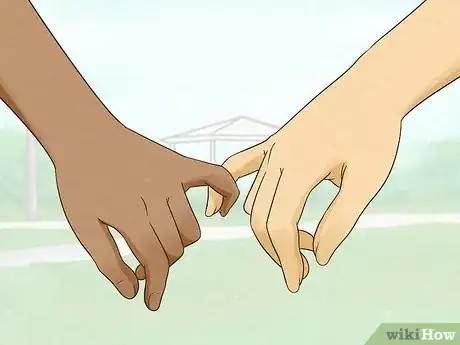
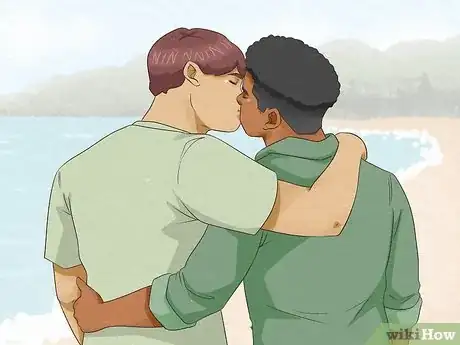




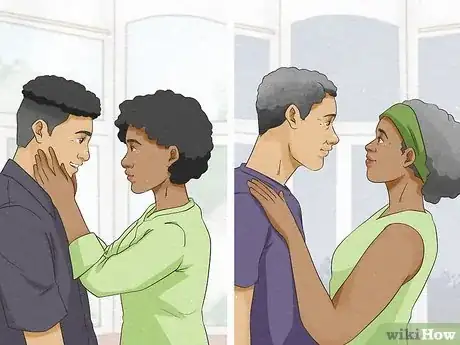
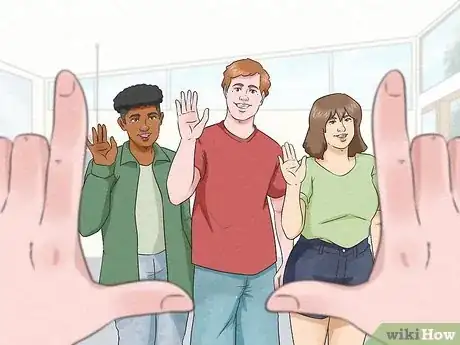
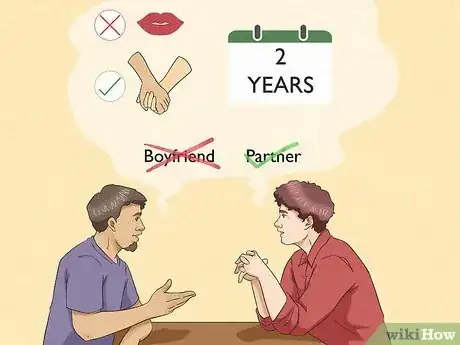
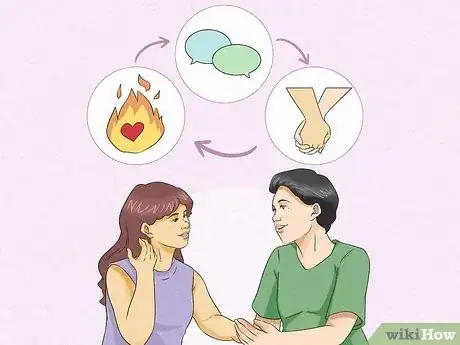








-Step-15-Version-3.webp)
-Step-8.webp)




































wikiHow’s Content Management Team carefully monitors the work from our editorial staff to ensure that each article meets our high quality standards.